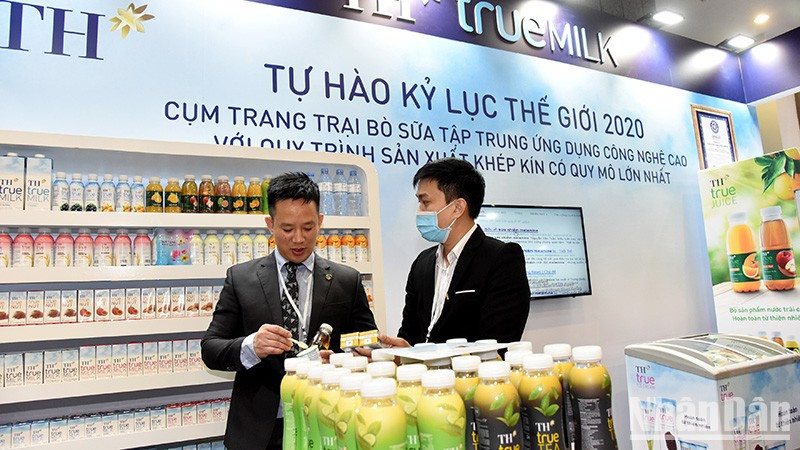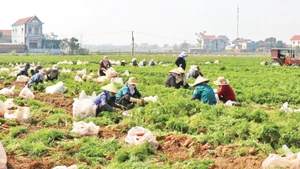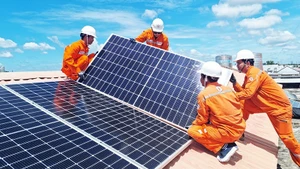CEO of Go/BigC system in Hanoi and the North Vietnam Le Manh Phong said the trend of sustainable consumption in Vietnam has become more obvious in recent years. A product with an environmentally friendly production or packaging process often brings more competitiveness to the business. According to a recent BigC report, 31% of customers are willing to pay more for products that support environmental protection.
Faced with this situation, many Vietnamese enterprises, especially large ones, have begun to shift their products to being more environmentally friendly.
As a pioneer in implementing the circular economic model, Chairman of TH Milk Food Joint Stock Company Vijay Kumar Pandey said by-products and waste from the production chain of TH Group are all utilised as input materials of another process and the life cycle of the material is maintained as long as possible before being discharged into the environment, thereby minimising emissions.
In addition, TH has implemented many sustainable consumption solutions such as replacing disposable plastic bags, spoons, and straws with eco-friendly bio-plastics. The TH True Mart system also reduced the total number of used plastic bags by 15% in 2022, equivalent to 19 tonnes of plastic bags.
Furthermore, the company cut 50% of plastic spoons distributed to the market and expects to raise the figure to 100% in the near future. It is anticipated that the complete elimination of disposable plastic spoons will help reduce the annual discharge of plastic waste into the environment by 130 to 260 tonnes.
From the beginning of this year’s second quarter, a series of retail businesses, transportation services, food delivery, and e-commerce platforms in Vietnam have begun to trial the conversion from petrol cars to electric cars. This is the most evident trend of sustainable consumption, which not only creates a positive impact on the environment but also enhances economic efficiency for businesses.
According to a study by Baemin (a food delivery service from the Republic of Korea), using electric cars helps save fuel costs compared to traditional petrol cars as well as saving 50% of maintenance costs. Successfully use of electric cars in its transportation services would help Baemin to cut operating costs by up to 30%.
According to Vijay Kumar Pandey, the main issues hindering to the implementation of green economic model and the circular economy are the large initial investment capital requirements as well as locating the right technology. However, TH was determined to invest in the model and the circular economy has helped the group reduce impact on the environment, save costs, as well as creating a strong motivation for future development. For instance, the initial investment cost to build a circular wastewater treatment system is very costly, but after its operation, TH Group can produce micro-organic fertilizer to use in its fields and can eliminate the use of chemical fertilizers.
Baemin Vietnam CEO Jinwoo Song said Vietnamese consumers are paying great attention to sustainable products, which are made from recycled or reusable materials. In addition, they also tend to choose dishes that are low in fat and sugar and rich in fibre and nutrition. This is reflected in the growth in the number of stores offering healthy products. The number has increased by 15% by June 2023 compared to the same period last year.
In fact, customers’ demand for environmentally friendly products is still modest while prices of such products remain the leading dominant factor.
However, when the economy stabilises again in the future, it is expected that the trend of using environmentally friendly products will expand strongly. When demand surges, more suppliers will appear, making it easier for customers to access such products.
Assoc. Prof, Dr. Nguyen Dinh Tho, Director of the Institute of Strategy and Policy on Natural Resources and Environment (Ministry of Natural Resources and Environment) said environmentally friendly products have higher prices because we have not reasonably charged environmentally harmful activities caused by “brown” businesses. The recent Law on Environmental Protection has regulated many new contents related to the responsibility of manufacturers, requiring businesses to carry out the responsibility of recycling and reuse of products.
















